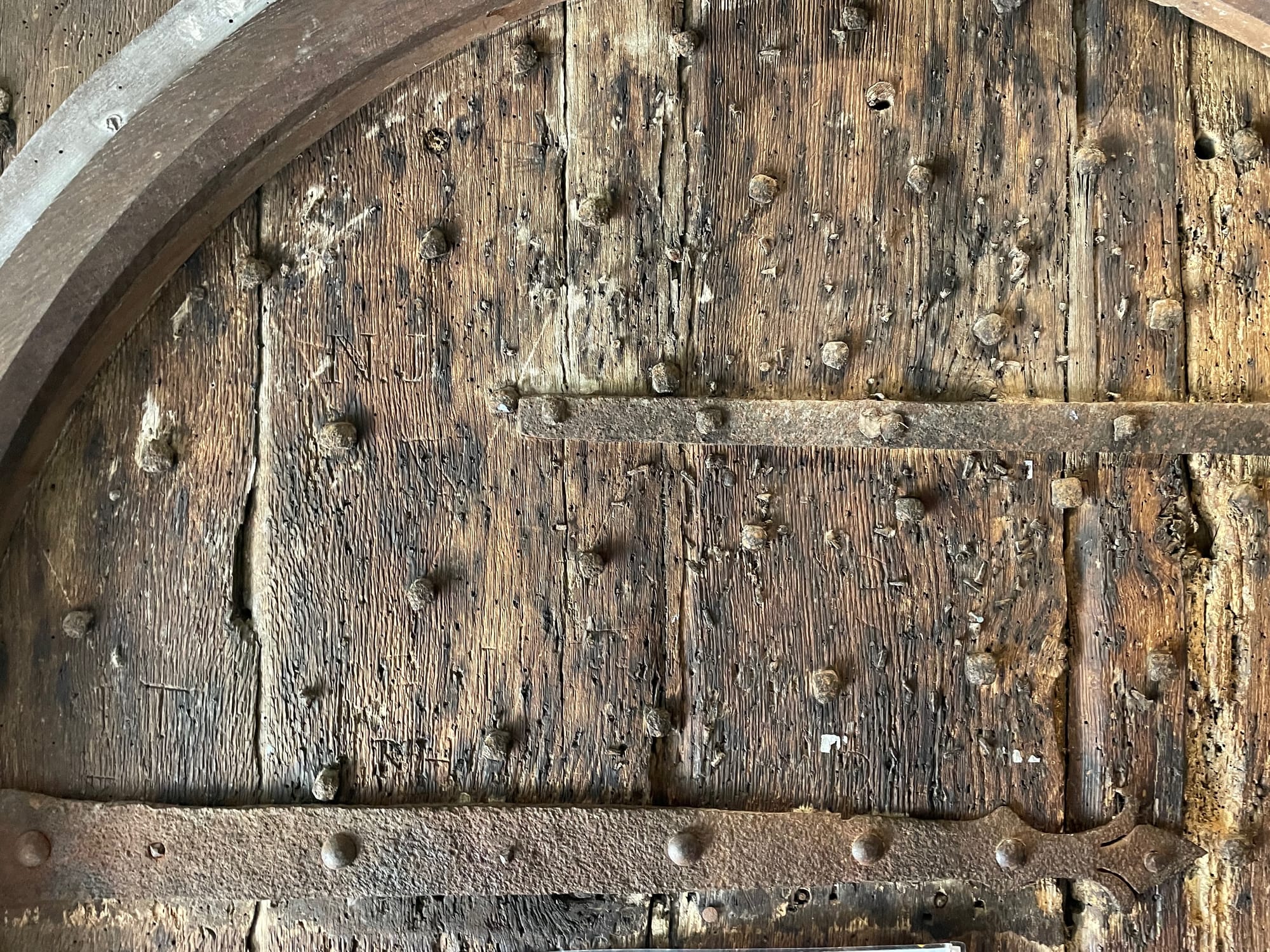
17 April 2022
Yorkshire Dales
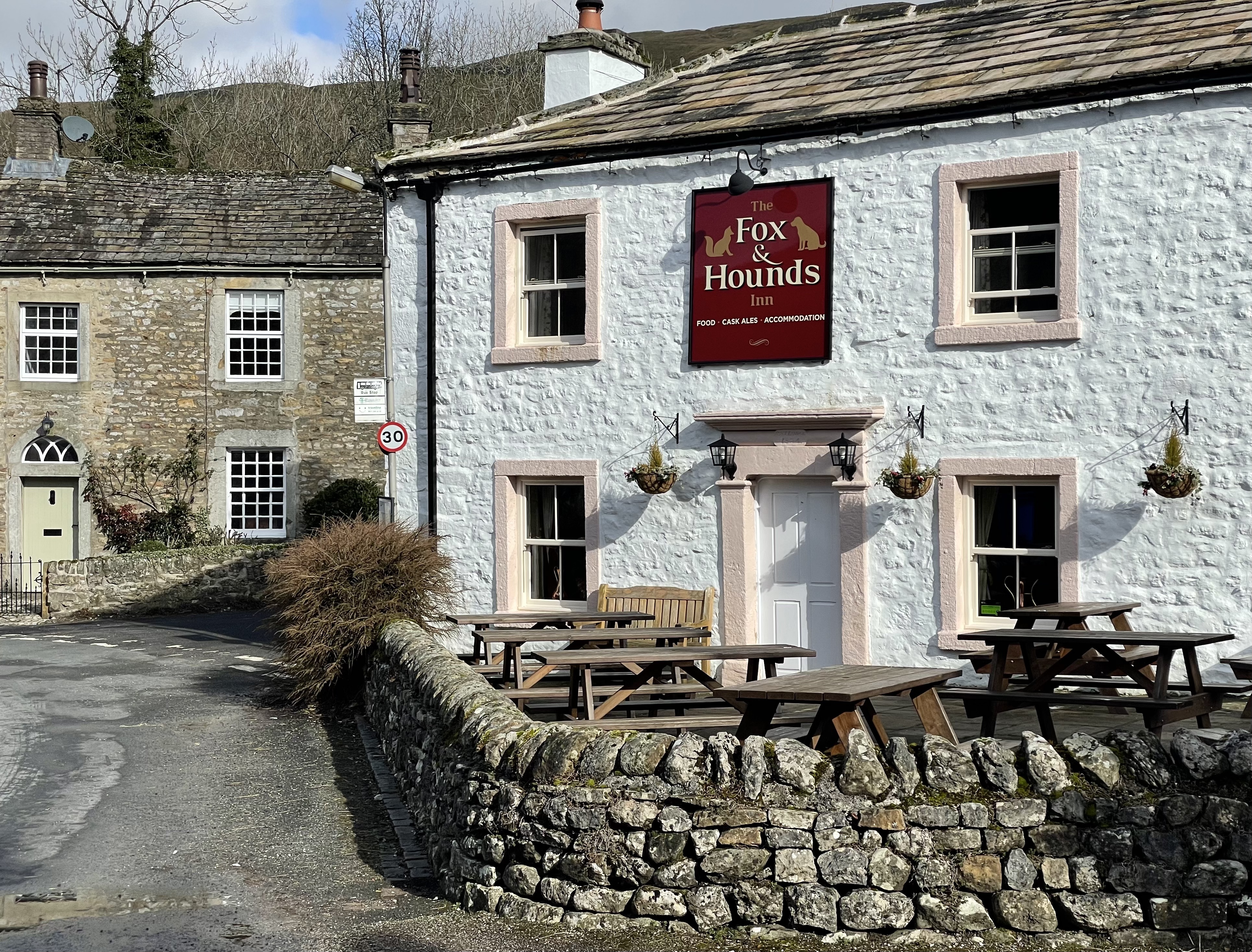
Today we’re heading out on the final walk of a tryptic of treks in the Yorkshire Dales that we’ve carried out over several weeks or so. Each walk within this area has had its own peculiar delights. This walk takes in a loop from Buckden via Yonkenthwaite to Hubberholme and back.
On the way to the car park at Buckden the road narrows into a single lane that dog-legs through the villages. The Yorkshire vernacular appears as a moving stage set. The van slips between the buildings like a gilded fish. We park at Buckden amidst a shoal of motorbikes.
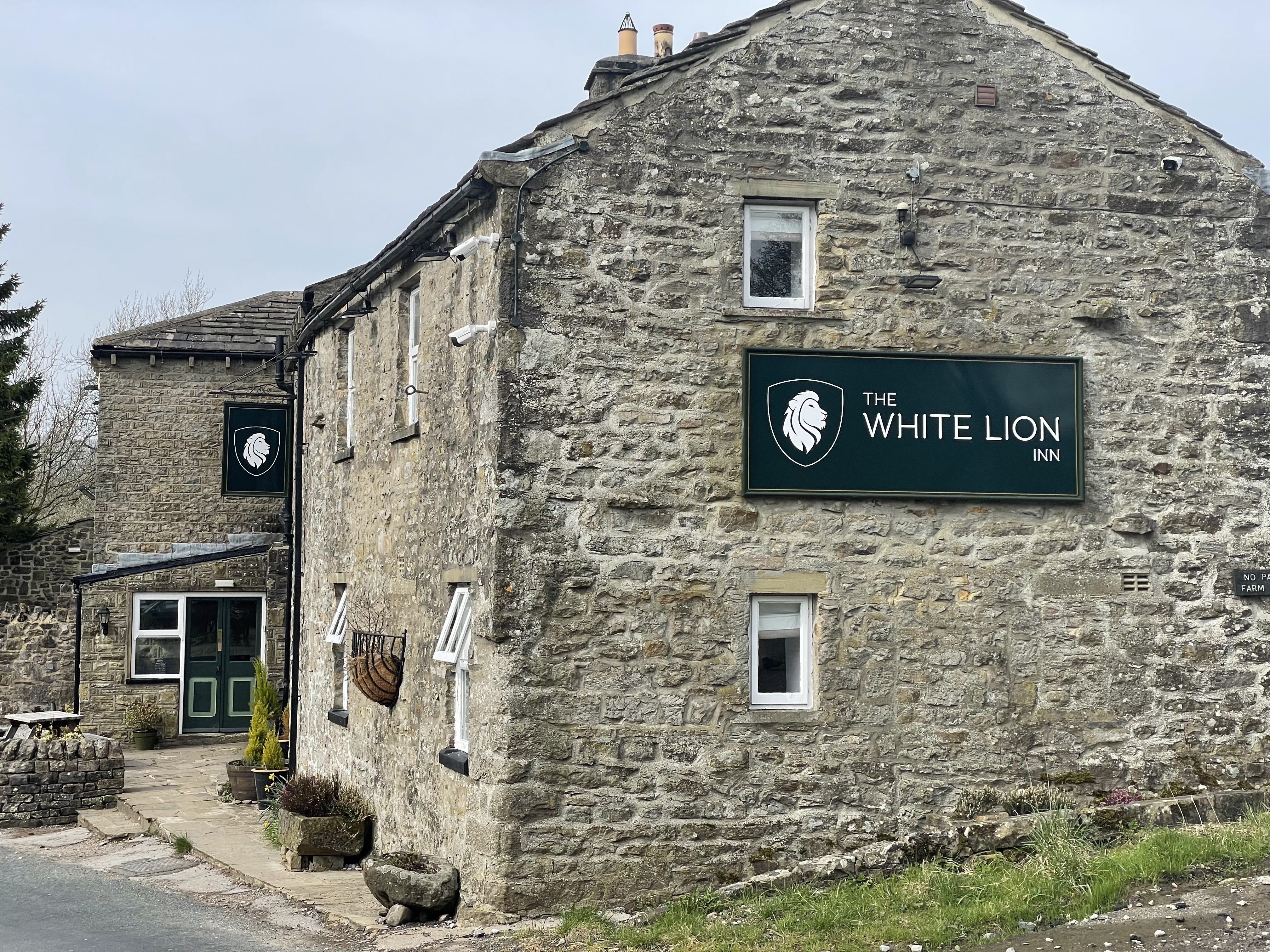
The first stage of our walk takes us from Buckden to Cray, where we stop prematurely and scoff our sausage butties. On our way through Langstrothdale we come across a derelict laithe. It’s a little off our path but I’m struck by the urge to see inside. It’s a curious feeling: there’s a need to scour the detritus for clues of human occupancy. I concoct a story by scanning the standing stones. A door has been blocked with infill. A stack of stone slates stands outside in random sizes. There are linear grass bumps where purlins have fallen. The through stones are enamelled in moss. There’s a shrinking of its purpose. I notice another laithe further along the scarp. It’s in pristine condition and I realise that the derelict building in which I’m standing is sacrificial; it is resurrected in stops and starts, in stone patches and roof parts, in its cousin up the brew.
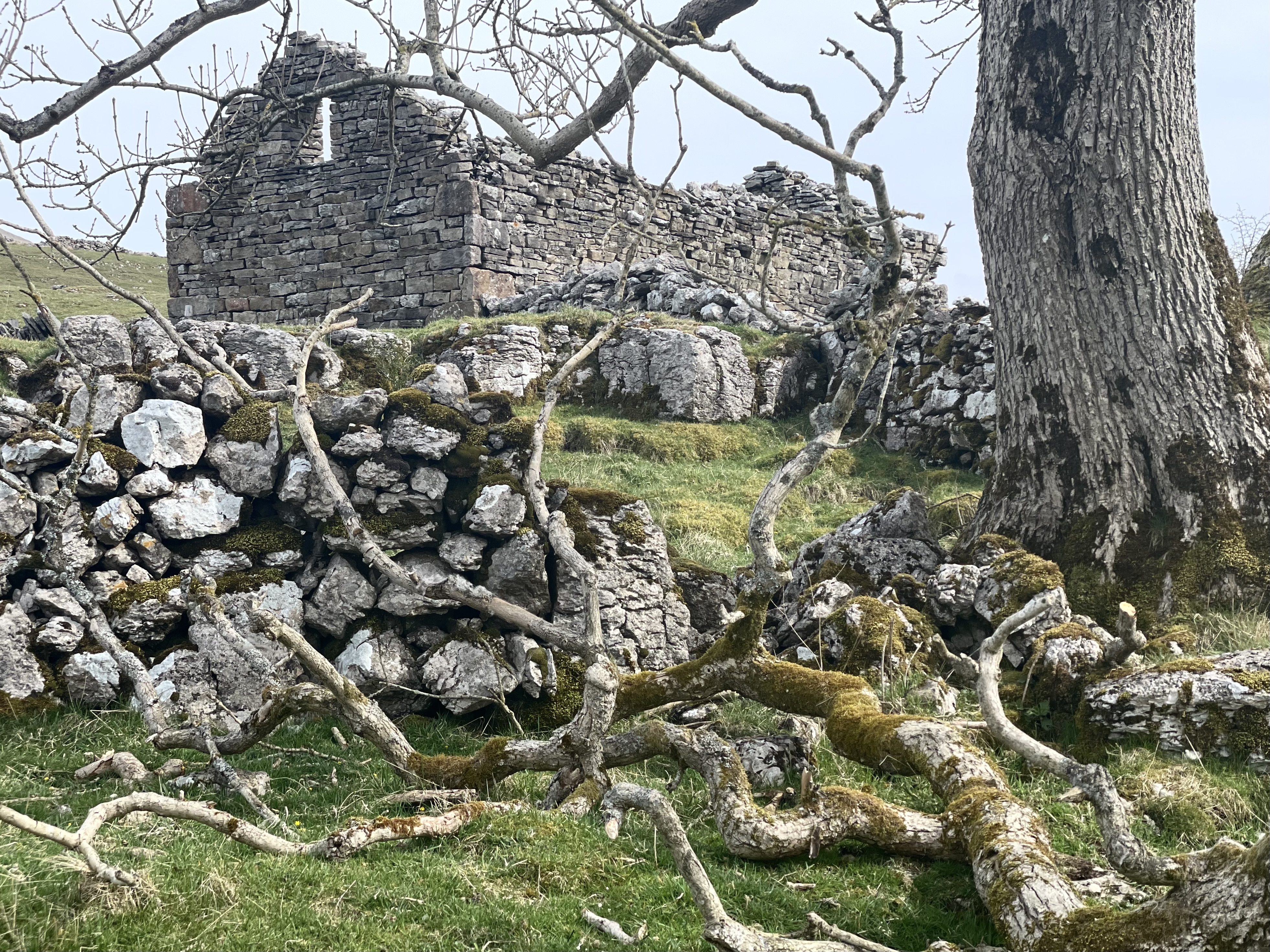

I’ve read that there’s a stone circle in a field beyond Yockenthwaite, so we extend our walk to try and find it. We skirt along the single track lane which follows the line of the river. The river sits on a limestone bed of slabs that present themselves like the contours on a map. Each slab is pocketed with hollows full of grit and stone. The limestone flattens out on the bank opposite and gives way to a thin skin of turf. I feel a jolt of anxiety at how fragile the section of soil and grass looks. I find it hard to believe that this measly layer has sustained these valleys for centuries and enabled a landscape of hamlet, laithe and drystone wall that we see today.
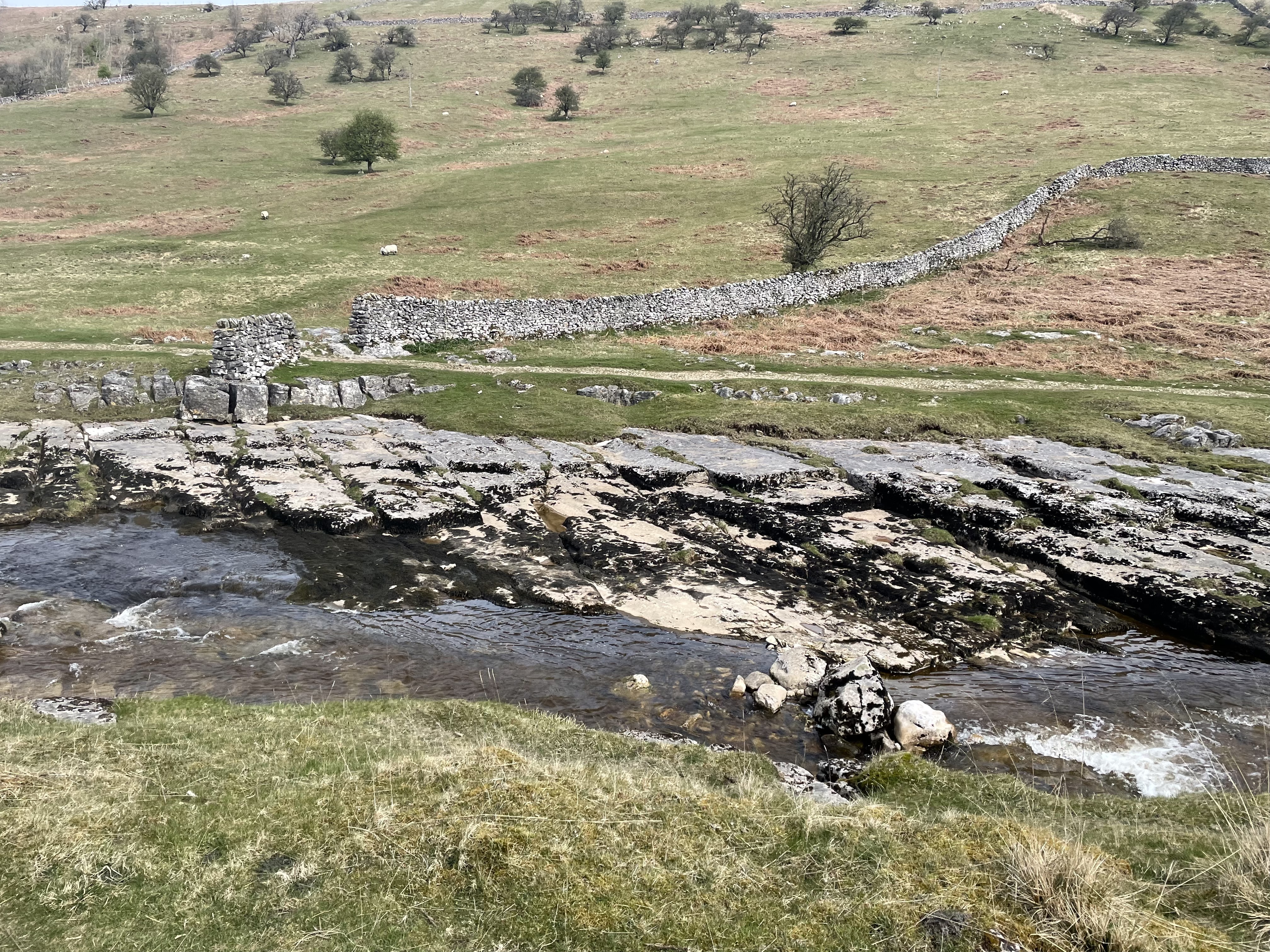
Beyond the riverbank, rising from the soil is the stone circle I’ve been seeking. I scramble across the bed of the river and walk through a gate into the field where the stones sit. As I navigate the henge, a wren bursts into song. How can such a small and delicate being impact its environment so instantaneously, so much so, that the silence that follows is as loud as the first burst of song? I sit within the circle and the silence and feel as though I’m caught between two worlds: that of deep rooted time and the fragile song of the here and now.
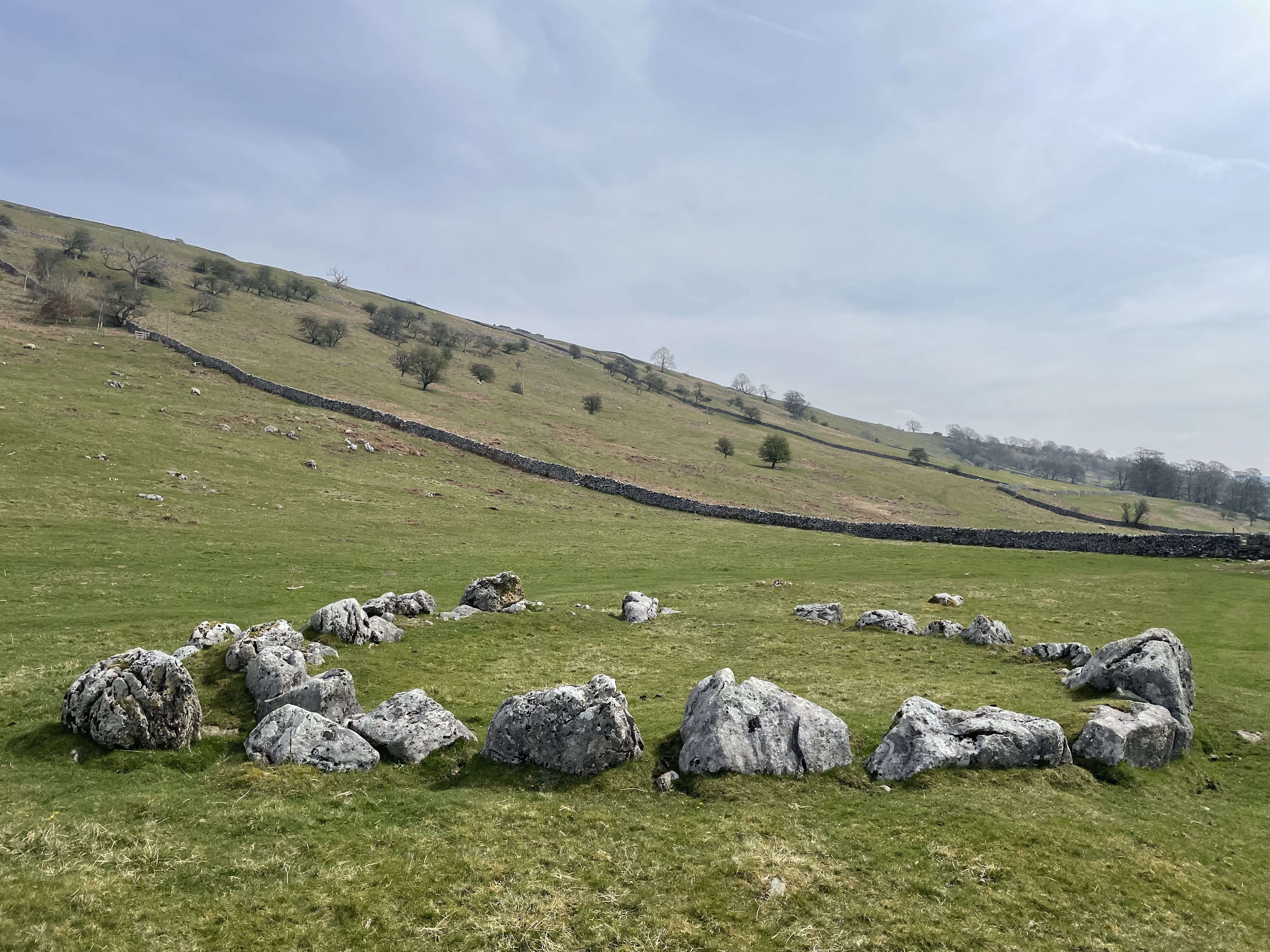

About an hour before the wren-song, we hear the bells of St. Michael and All Angels at Hubberholme. The sound greets us in erratic bursts, bouncing off the valley side. The view beyond Cray house offers glimpses of the church tower through a wall of trees in the valley. The trees aren’t in leaf so it is the perfect day to see it. We circle at wren height from the valley side and swoop down as the bells ring in Easter.
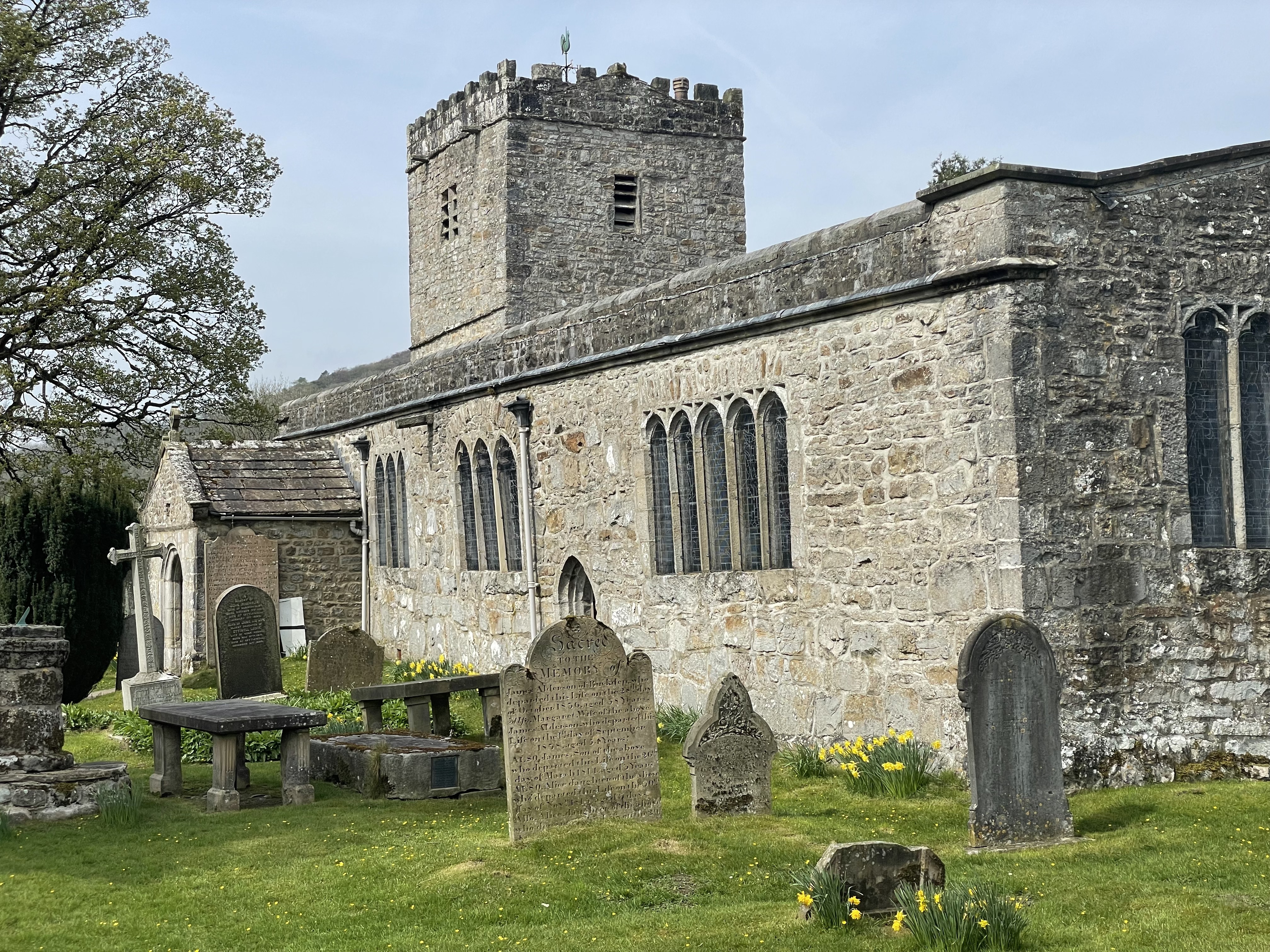
Once the bells stop, the rooks take over. The clamour dips and flusters above the valley amidst bursts of guffs and caws. I imagine from their height the landscape reveals itself like a piece of quilted upholstery, buttoned down by laithe, henge and church.
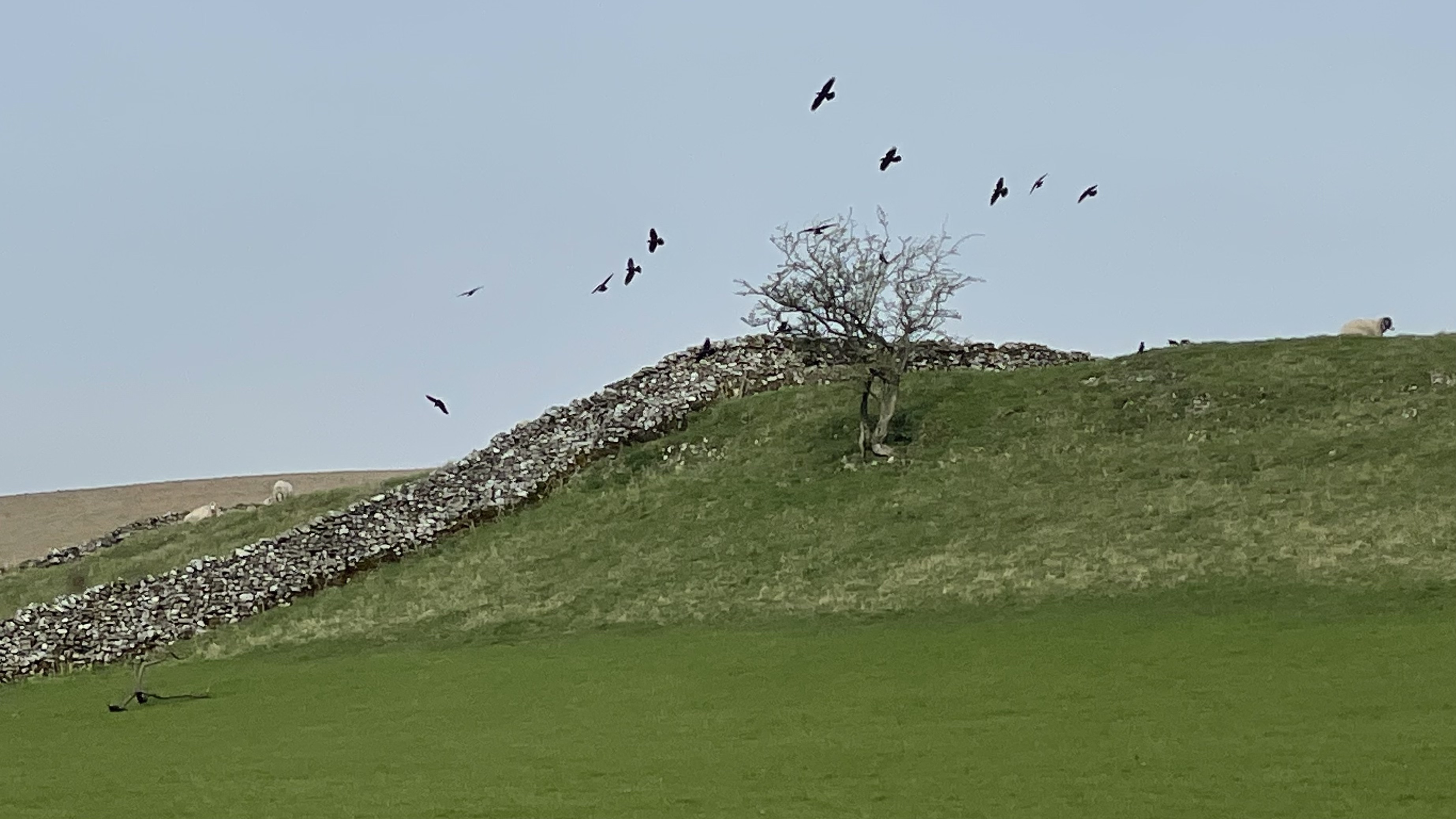
Laithe, henge and church. I can’t help but think that these standing stones are of equal measure. The fact that some serve our spiritual needs and others our secular is of no consequence. They’re all curated, built from beneath, of the same stone, pinning down the fragile layer of human interaction.
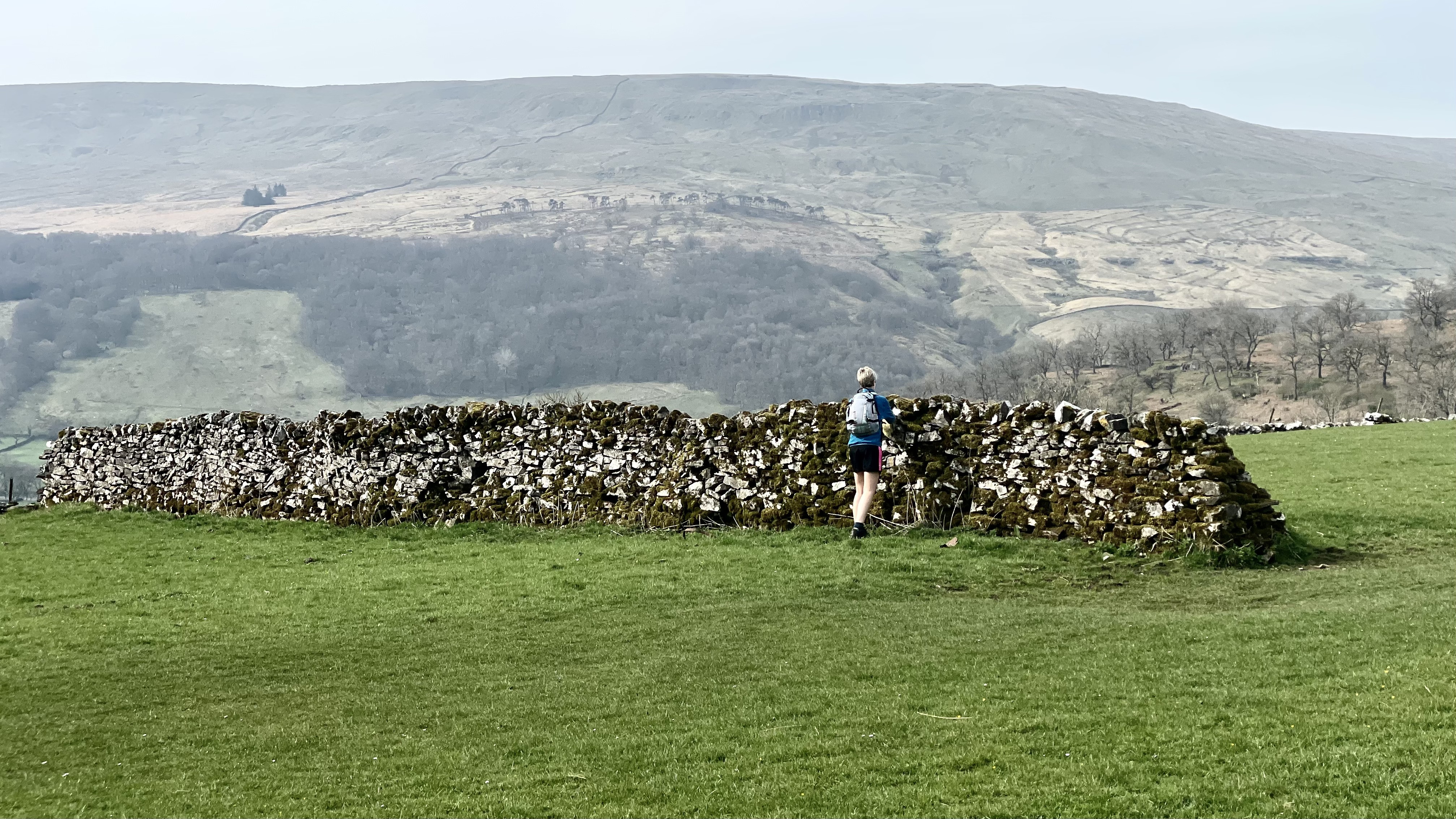
View Next Entry:
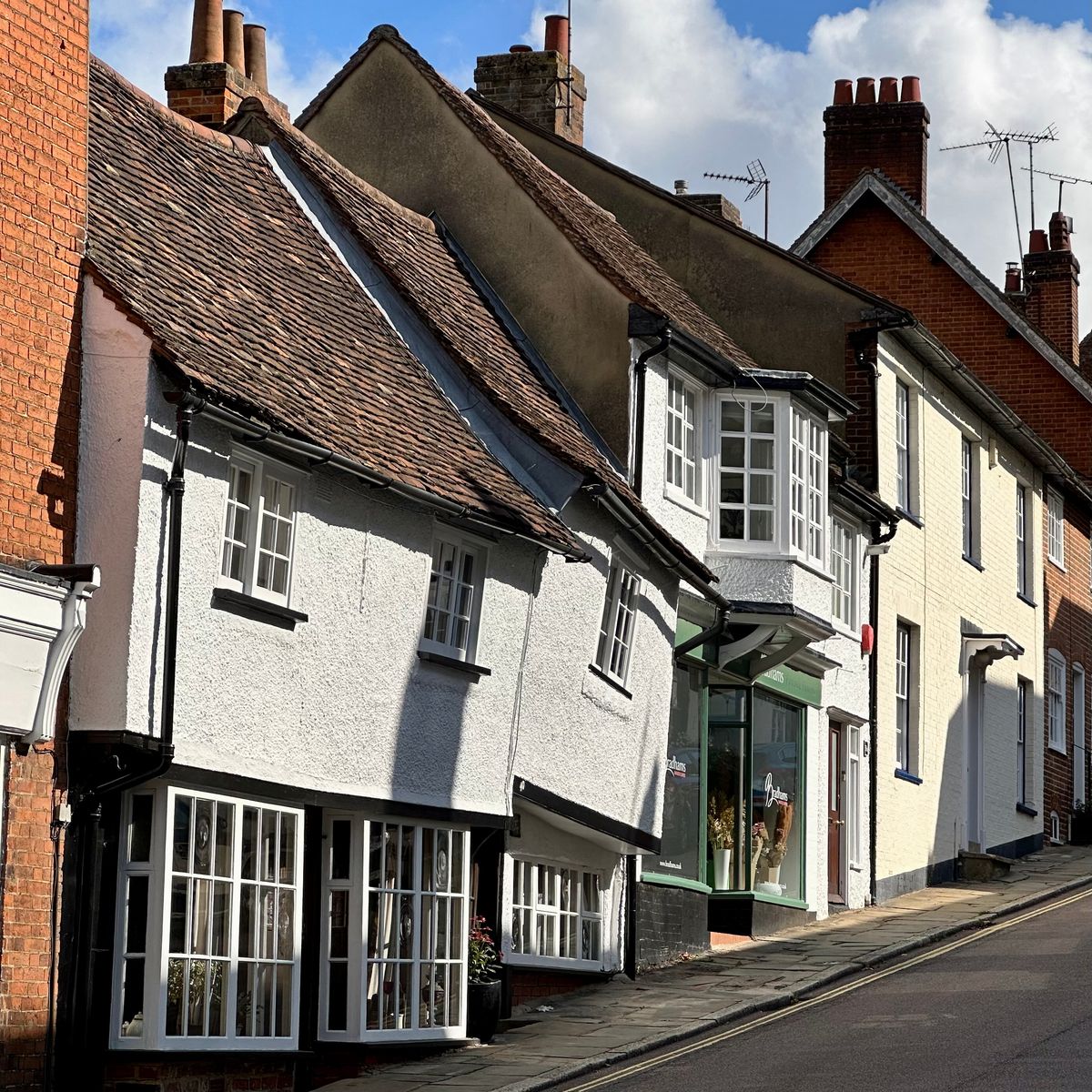
⚡️Discover More



More about this Digest:
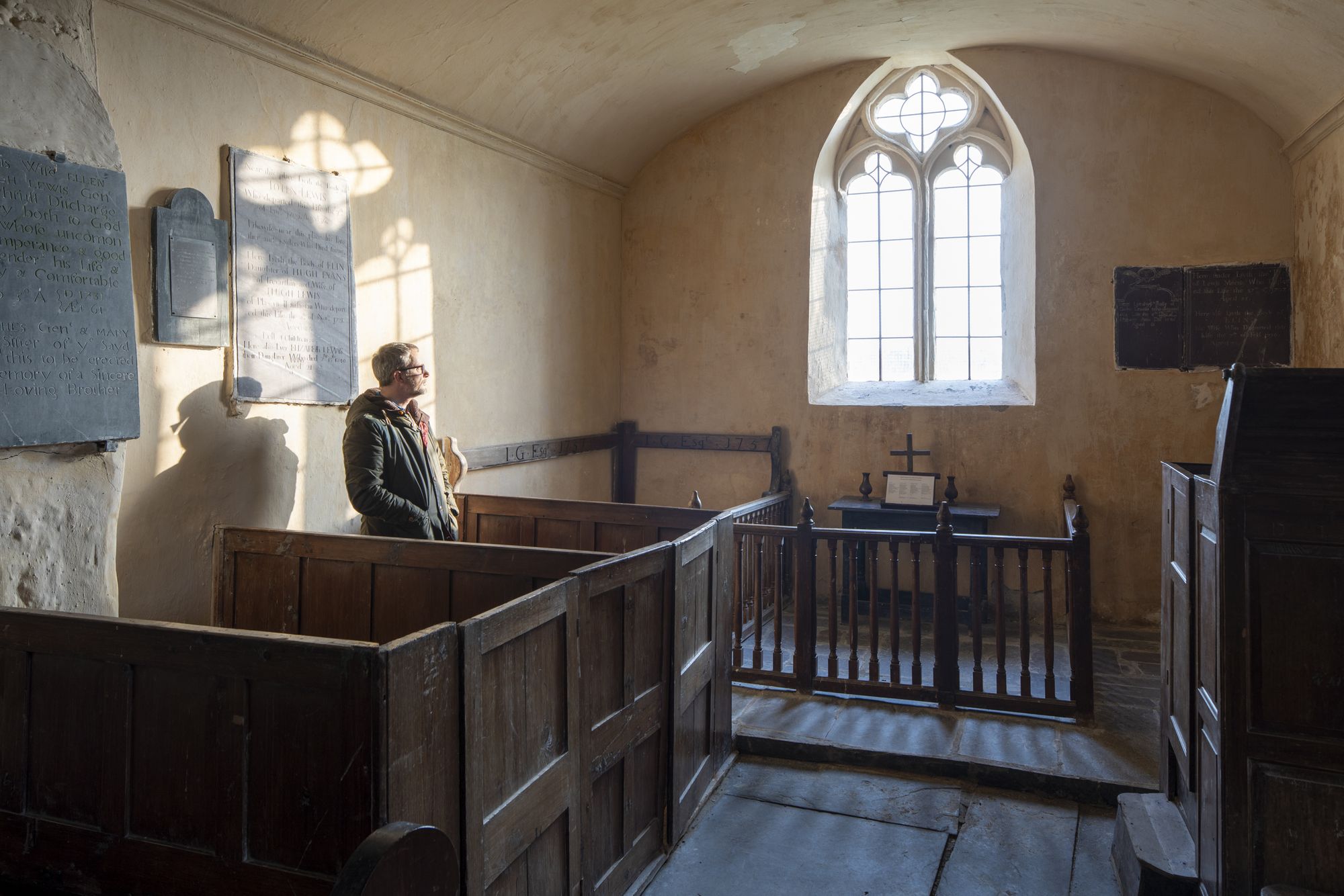
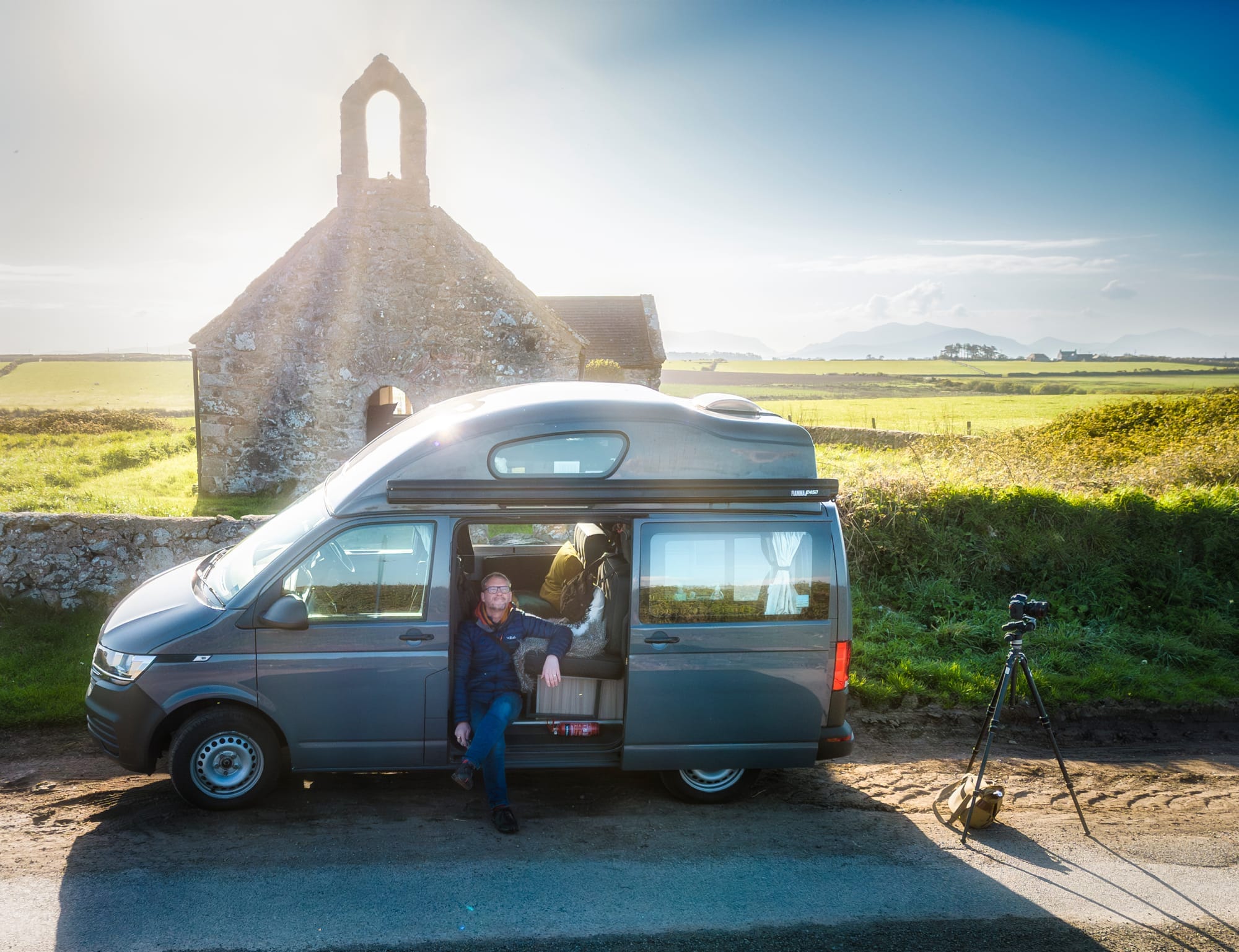
Can you help support me on my journey by becoming a Member?
Help keep Woody on the road and support the Genius Loci Digest.
Explore th Benefits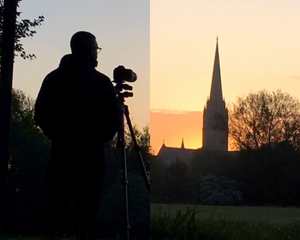








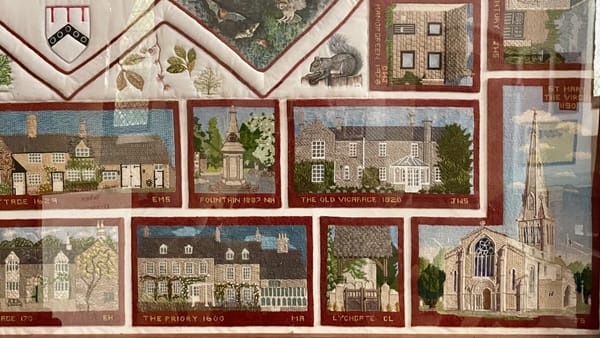

Member discussion